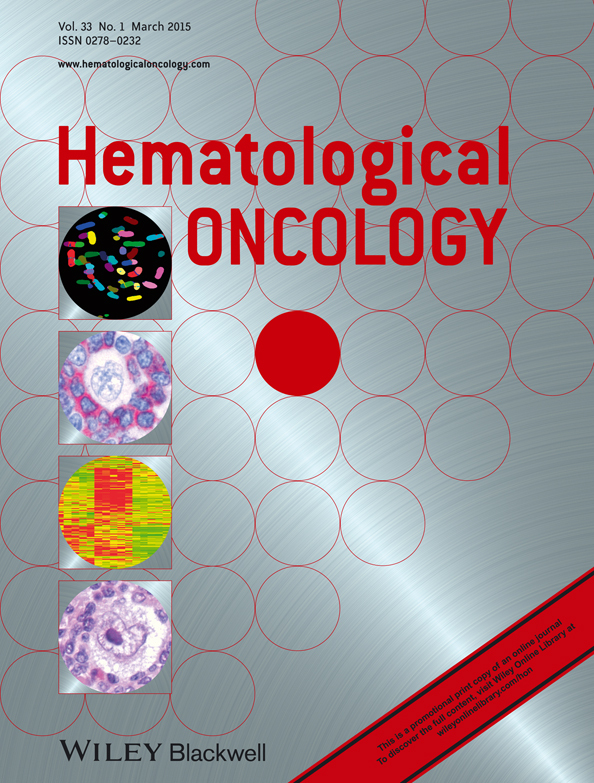Lenalidomide for myelodysplastic syndromes with del(5q): how long should it last?
Abstract
Lenalidomide induces in patients with myelodysplastic syndrome (MDS) and del(5q) erythroid and cytogenetic response rates as high as 75% and 50%, respectively. It is still unclear, however, how long lenalidomide treatment should be continued and whether or not the drug could be interrupted. To assess the feasibility of lenalidomide discontinuation, we revised a cohort of 16 low-risk MDS patients with del(5q) treated at our institute in a phase II multicentric Italian study. Among the 12 responding patients, four discontinued lenalidomide while in complete response. All four patients needed during treatment a permanent lenalidomide reduction from 10 to 5 mg/day because of haematological toxicity (three patients) or grade 3 muscular and bone pain (one patient). At lenalidomide discontinuation after 16, 20, 27 and 20 months from the start, respectively, all four patients were in complete hematologic response and three forth in complete cytogenetic response. Three patients are still in response after 36, 30 and 20 months from lenalidomide discontinuation, respectively: The remaining patient relapsed after 20 months, and she is now receiving a new course of lenalidomide. In conclusion, long-lasting remissions are achievable in MDS patients with del(5q) in complete response after lenalidomide discontinuation. Copyright © 2014 John Wiley & Sons, Ltd.




